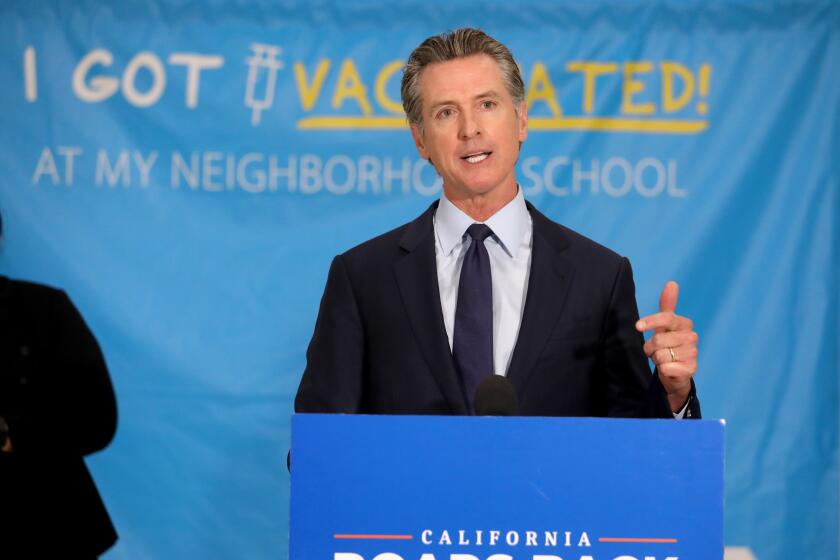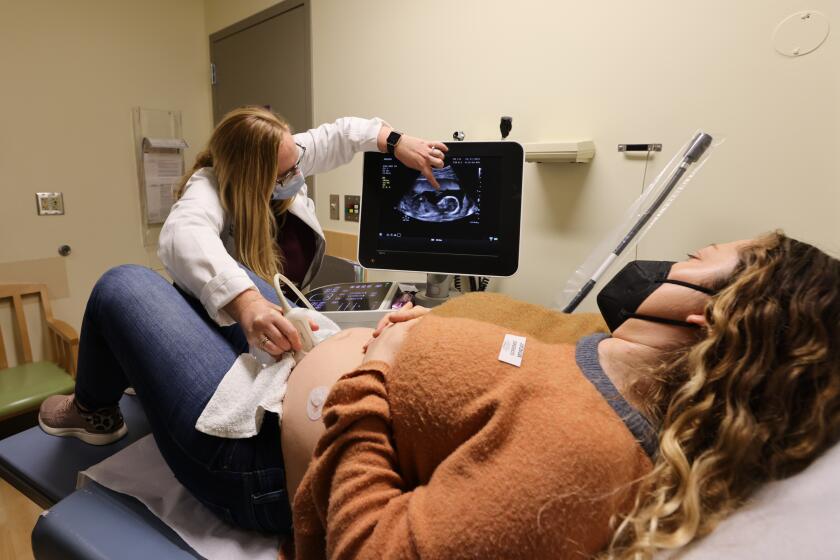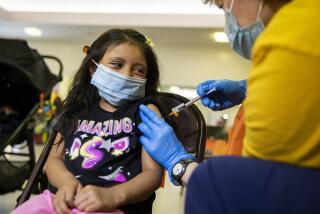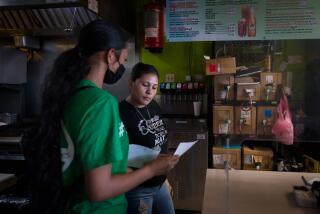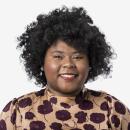Breastfeeding and vaxxed: Parents delay weaning children to pass on COVID-19 antibodies
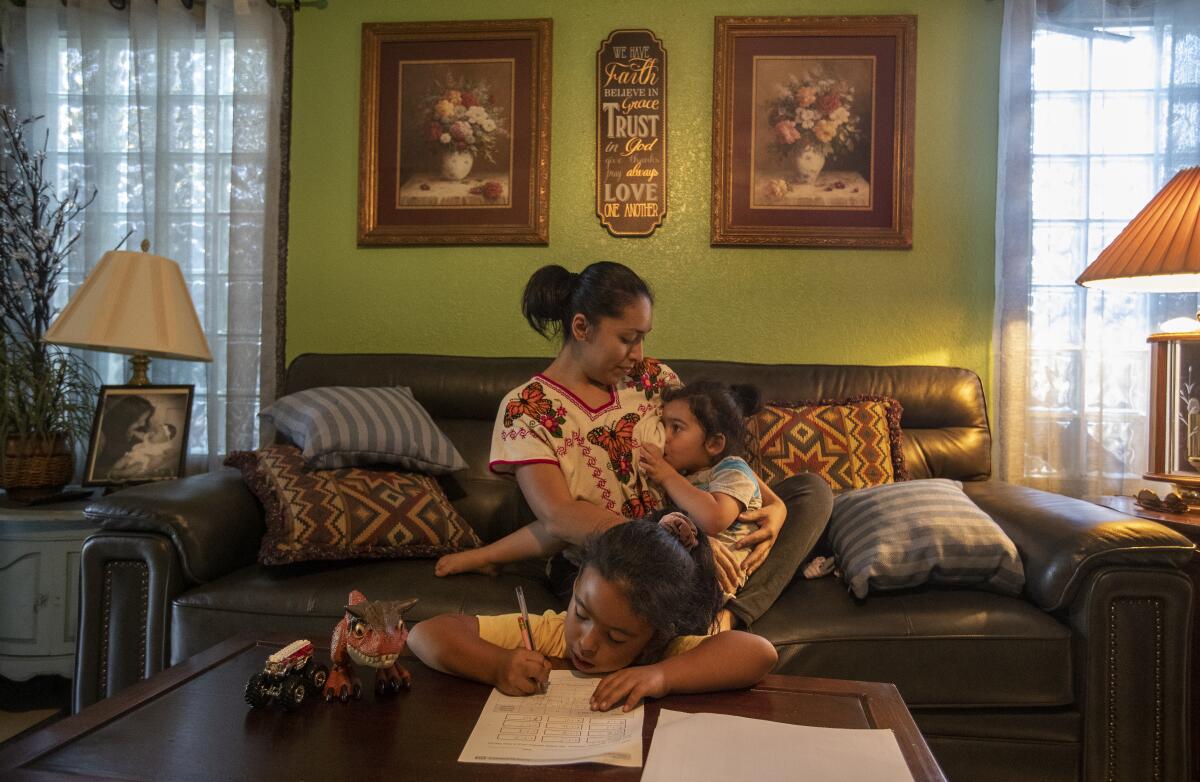
- Share via
Mireya Tecpaxohitl Gonzalez is used to the stares at the grocery store when she breastfeeds her 3-year-old son.
And before you judge her: She’s not doing it for attention and her kids are not spoiled because she continues breastfeeding them.
The Panorama City mom has always been an advocate for the benefits of breastfeeding. Although she received the Pfizer COVID-19 vaccine this year, the ongoing pandemic and uncertainty about when young children will be eligible for a vaccine made her worried. But she read online research that showed the antibodies from the vaccine could be passed through breast milk.
Gonzalez was already planning to continue breastfeeding her son and 7-year-old daughter. Now, she is urging mothers to be vaccinated and continue providing breast milk to protect their kids.
“We can actually talk about weaning and she’s old enough to know what antibodies are,” Gonzalez said. “We call them little warriors in the milk and she’s willingly drinking it; she knows about the pandemic.”
Lactating parents in California who are vaccinated for COVID-19 have kept nursing beyond the six-months-to-one-year recommendation out of determination — and fear — that human milk is the best protection they can offer their smallest children until a vaccine is available for them.
Researchers found in a study published this month in Pediatrics, the journal from the American Academy of Pediatrics, that COVID-19 antibody concentrations were “significantly higher” in the milk of mothers who were breastfeeding 24 months or more compared with mothers with shorter breastfeeding periods.
“The stronger effect of COVID-19 vaccination on [human milk] immunoglobulins in lactation periods [greater than] 2 years suggests a need to increase support and health policies that encourage such long breastfeeding periods in times of a pandemic,” researchers said. “More studies are needed on how long these antibodies last in [human milk] and on their implication in protecting the breastfeeding population over time.”
More children ages 5 and up nationwide are slated to have access to COVID-19 vaccines in the coming weeks and months. In California, more than 671,000 kids between ages 0 and 17 have tested positive for the coronavirus, representing 14.7% of all cases statewide, according to the American Academy of Pediatrics.
The state’s struggle to implement Newsom’s mandate comes as workplaces across the nation are imposing deadlines for workers to provide proof of vaccination or risk losing their jobs.
Thirty-seven children statewide have died of COVID-19, according to the latest data available from the California Department of Public Health.
Federal health officials with the Centers for Disease Control and Prevention and National Institutes of Health have repeatedly urged pregnant women to get one of the COVID-19 vaccines to protect themselves and their babies. But as vaccination rates among pregnant people lag, federal, state and local public health officials are touting data and the science of why vaccines work.
Dr. Anthony Fauci, director of the National Institute of Allergy and Infectious Diseases, said during a White House briefing on COVID-19 in August that when a pregnant woman is vaccinated, the antibodies found in breast milk neutralize the virus, protecting a newborn baby.
“If you look at the strong statement of 23 leading organizations who strongly urge all pregnant individuals — as well as recently pregnant, planning to become pregnant, or lactating, and other eligible individuals to be vaccinated — the bottom line: Get vaccinated,” Fauci said.
The U.S. Dietary Guidelines for Americans and the American Academy of Pediatrics recommend parents provide human milk to infants for about six months, and then slowly introduce solid foods until a child is 12 months or older.
The CDC says moms who breastfeed have a lower risk of breast cancer, ovarian cancer, Type 2 diabetes and high blood pressure. Meanwhile, their kids have a lower risk of asthma, obesity, Type 1 diabetes, sudden infant death syndrome, ear infections and stomach bugs.
Subscribers get early access to this story
We’re offering L.A. Times subscribers first access to our best journalism. Thank you for your support.
Angelica Rojas, community outreach and marketing manager with Mother’s Milk Bank, a San Jose-based organization that takes human milk donations, said the group is “not specifically going out there and searching for moms that have had the vaccine” but will accept donations.
“As long as the mom is healthy going through the screening process both for mom and baby and lab tests are good and they’ve been approved to be a donor, then we will accept the milk,” Rojas said.
When it comes to weaning, it’s a personal decision, according to the CDC. The agency recommends weaning over several weeks or more by replacing one breast milk feeding a day with a bottle of infant formula or with a cup of plain whole cow’s milk for toddlers. As people slowly stop nursing, their body will eventually no longer make milk.
“We don’t live in a society that is very supportive of human milk feeding outside of a certain period like postpartum or in the hospital,” said Ifeyinwa Asiodu, an assistant professor and registered nurse at UC San Francisco.
Asiodu pointed out that the World Health Organization recommends breastfeeding children up to 2 years old and beyond while still incorporating other foods. Parent-shaming happens not only if families decide to not breastfeed but also if they do so for longer than six months or a year.
“There’s unfortunately a stigma or taboo in places and communities around breastfeeding or feeding a child that is no longer an infant or carryable,” Asiodu said. “Folks think once that child’s teeth comes in or they move around or talk they should be automatically weaned, but not everyone holds that same view.”
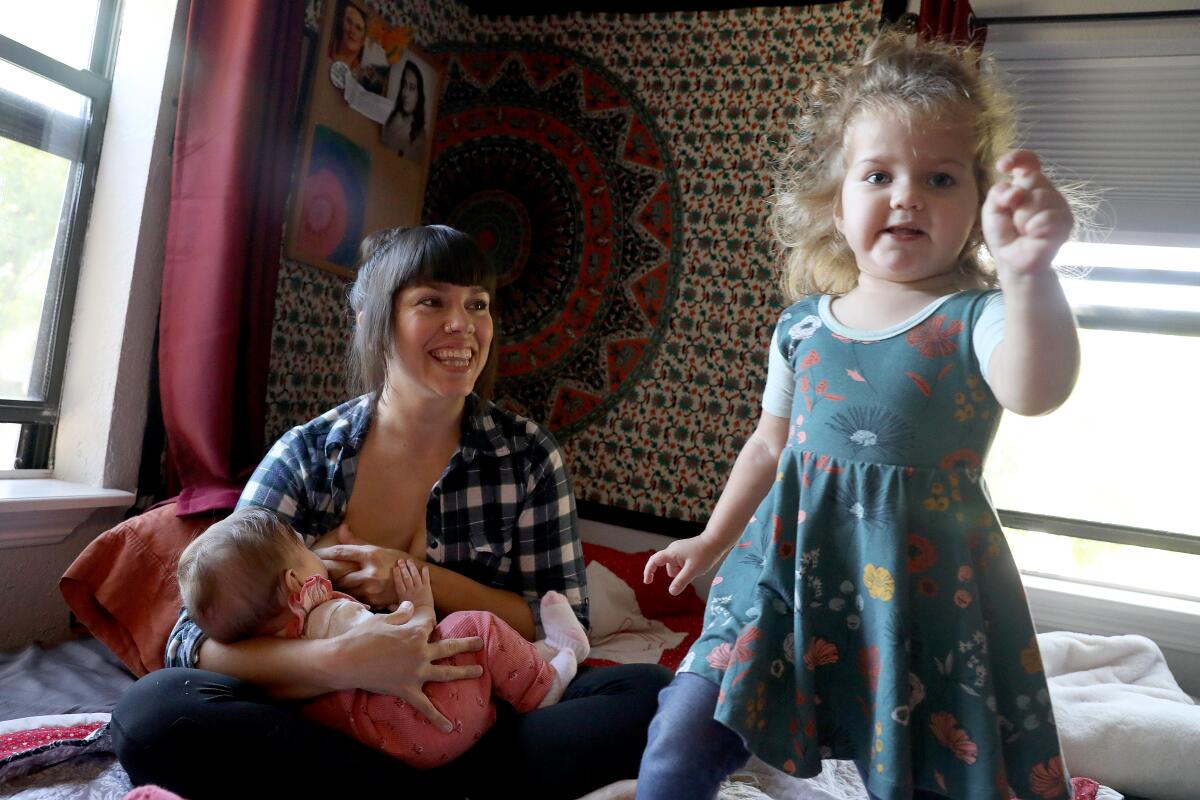
In Sacramento, as soon as Melissa Pennel read that she could pass on COVID-19 vaccine antibodies through her breast milk, she started hatching a plan to give it to her 2-year-old daughter.
Pennel received her first dose of a COVID-19 vaccine when she was 40 weeks pregnant with her second child this year. While pregnant, she was considered in the high-risk groups eligible for a vaccine. She already planned to breastfeed her newborn but decided to start giving her older child breast milk again after she was already weaned.
For months, Pennel has done an extra session of pumping her breast milk every night, and then put it in her daughter’s oatmeal, cereal or smoothies in the morning.
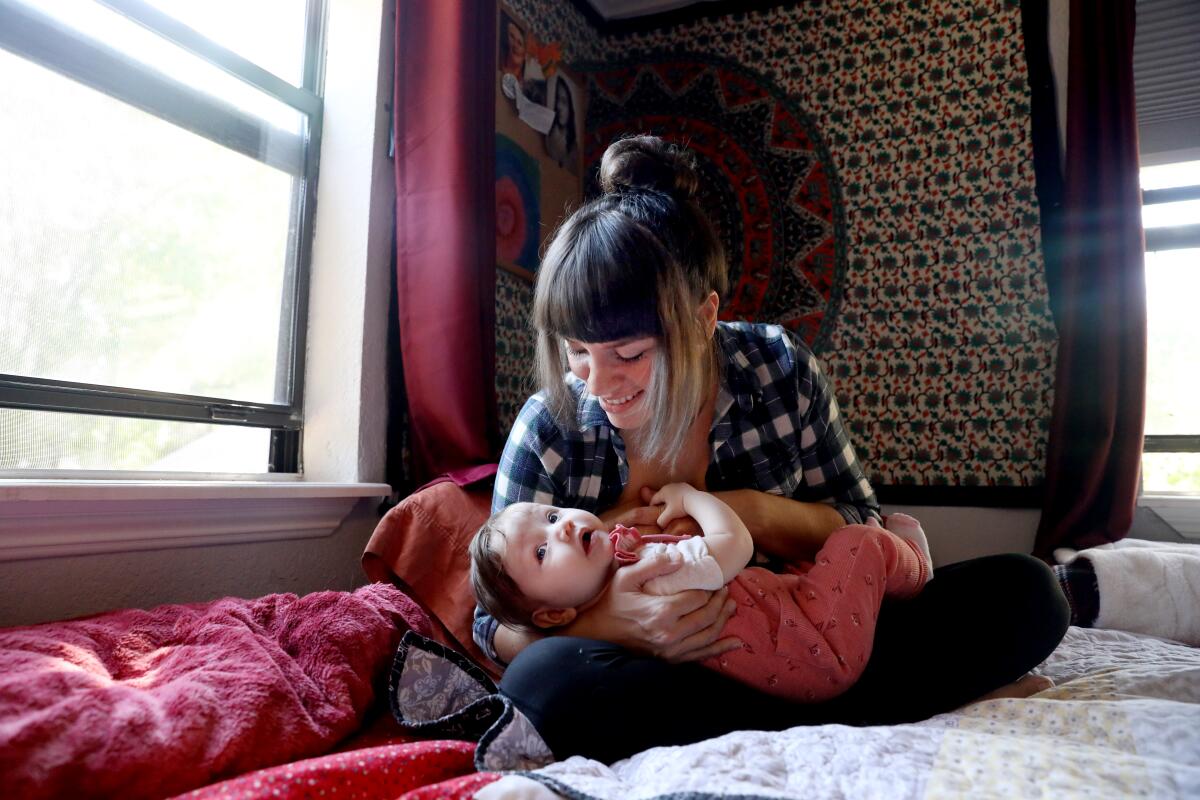
“Part of it is mental and feeling like I have protection over my family,” Pennel said. “I think a lot of it is balancing the way we feel about protecting our kids and knowing how much protection is really being offered.”
When the nanny for Pennel’s kids contracted the coronavirus, she probably had it at least a week before she found out. This was after holding and interacting with the children. Pennel said she likes to think it was her breast milk that kept her children from contracting the virus.
Rosa Fernandez, a mother of two in Sacramento, remembers “it got pretty intense” in the breastfeeding community on Facebook when the vaccines started coming out. Breastfeeding sites and medical groups were getting online backlash from anti-vaccine parents on social media for touting the safety of the COVID-19 vaccines.
She had read medical articles and looked at comments from medical professionals online about passing on antibodies. After being vaccinated, she is continuing to nurse her 2-year-old.
Vaccines have long been important to her and her family. Her mother died of the H1N1 flu years ago while Fernandez was pregnant with her oldest child, who is now 7. Her father contracted the coronavirus at one point. He survived, but the ordeal has made Fernandez vigilant. She’s hoping to have her kids vaccinated as soon as they’re eligible.
“I don’t have high expectations that most parents are going to get their children vaccinated,” Fernandez said. “All I can do is do what I think is best for my family, which is getting us vaccinated and trying to nurse and get what antibodies I can to the toddler before he can get vaccinated himself.”
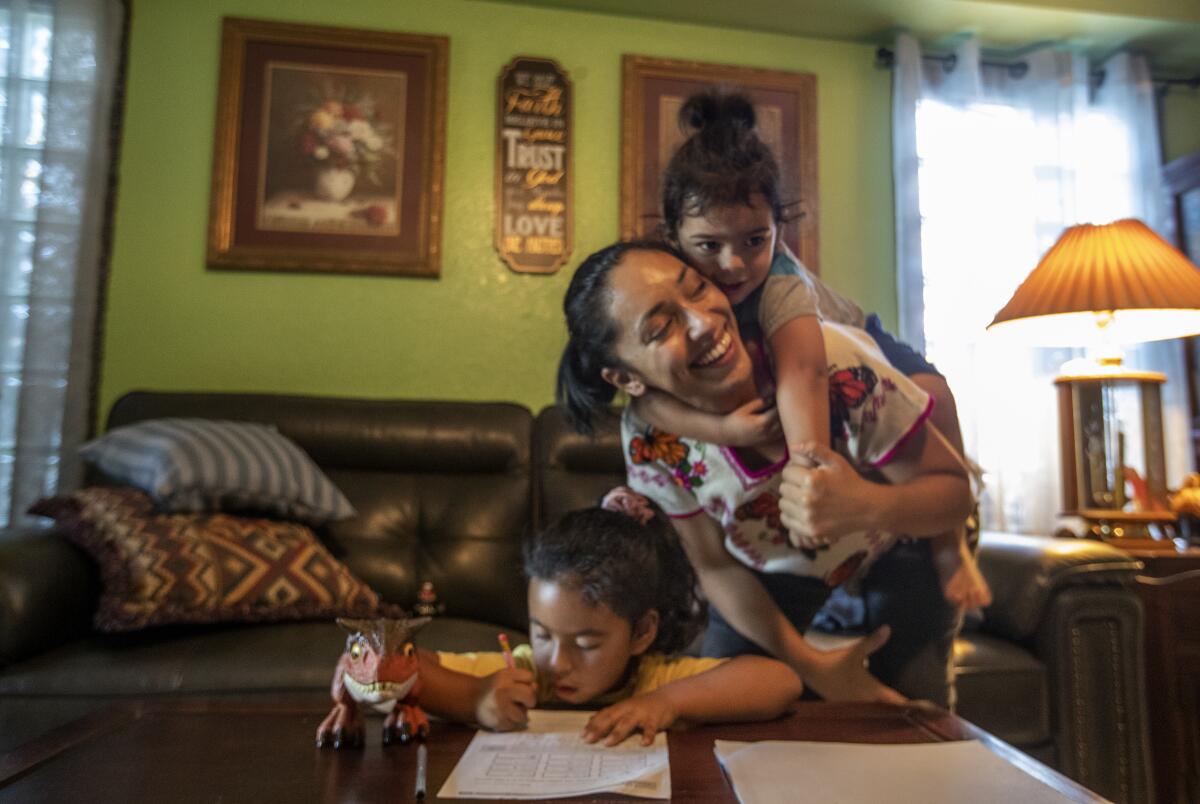
Gonzalez, an Indigenous woman from Mexico, said continuing to breastfeed her kids is part of her resistance to pressure in the United States to wean early or offer formula.
Through her work with BreastfeedLA, a group that advocates and provides resources for breastfeeding, she has heard from many COVID-19-vaccinated parents who have confided they’re committing the alleged social taboo of breastfeeding past six months. It’s all so they can pass on COVID-19 antibodies to their kids.
“It’s more important for other mothers who may be in the closet about this to know that they’re not alone,” Gonzalez said. “It’s still important for parents to know they’re not alone to delay weaning even if their own family is giving them pushback.”
For her daughter, Gonzalez is allowing her child to decide when to gradually stop drinking her mother’s milk. Before the pandemic, Gonzalez’s daughter told her mother, “I’ll stop breastfeeding when I start school.” But doing school online from home, her daughter said she wasn’t ready. Gonzalez thought her daughter might start weaning before starting first grade this year, but she’s continuing to breastfeed in the evenings.
Sharing custody with her daughter’s father means Gonzalez won’t be able to decide alone on whether to have her vaccinated. She said it has been shocking to see how many Latino and Indigenous people are still vaccine-hesitant. She said that ultimately, whatever the Los Angeles Unified School District mandates, she will comply and advocate for her daughter.
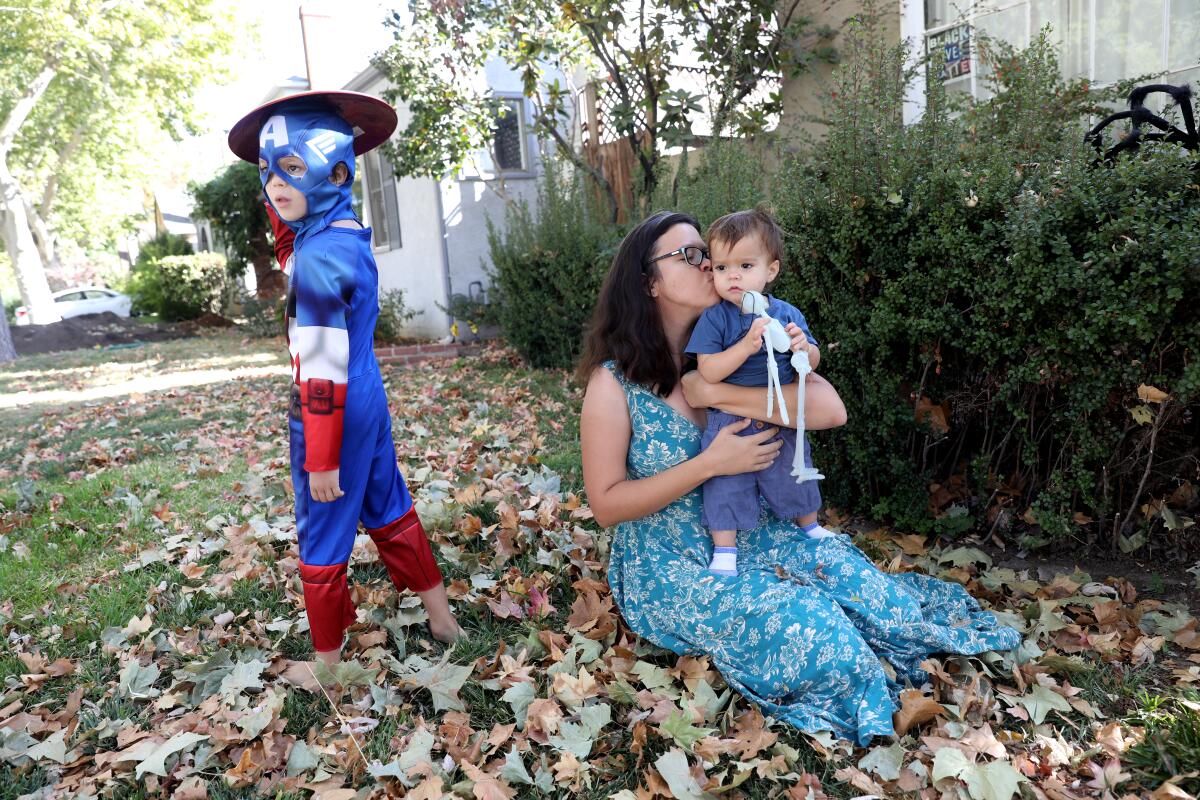
When Eva Schwartz received her Moderna vaccine, she was still able to nurse her now-15-month-old son. She has been pumping her breast milk as much as possible, giving her son a bottle whenever she can so he gets antibodies.
A long-standing tradition of keeping pregnant women out of clinical trials is having serious consequences with regard to COVID-19.
The Sacramento-area mom initially wished she could mix her breast milk into her 6-year-old son’s food or put it in a cup so he could get the antibodies. But her husband opposed the idea.
“The vaccine is opening things up, but there’s also a huge anxiety,” Schwartz said. “There’s an anxiety that came on this pandemic that showed how easily a disease can transmit just through casual encounters that you don’t even think as dangerous.”
Schwartz said they’re planning to have their sons vaccinated as soon as they’re eligible.
Several months ago, Gonzalez took her son for a long-awaited dentist visit. She had delayed making the appointment because she feared that she and her kids would contract the virus. But the dentist gave her pushback on continuing to breastfeed her son. Gonzalez argued that she was passing on antibodies through her breast milk and that it’s still an important part of oral health too.
“I felt confident to make that appointment,” Gonzalez said. “l felt like letting the dentist know the only reason why I felt safe to make this appointment was because we were doing this.”
More to Read
Sign up for Essential California
The most important California stories and recommendations in your inbox every morning.
You may occasionally receive promotional content from the Los Angeles Times.
